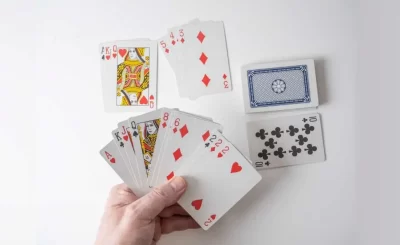Think about the last time you truly connected with your family or a group of friends. Not just sharing a room while staring at separate screens, but actually connecting. It’s harder than it used to be, right? Our calendars are packed, our attention is fragmented. We crave that feeling of togetherness but often don’t know how to engineer it.
Well, here’s a thought: maybe the solution has been sitting in a deck of cards all along. For generations, Rummy has been more than just a game. It’s a quiet, powerful engine for social bonding. It’s a reason to gather, to laugh, to strategize, and to create those shared memories that stick with us. Let’s dive into why this classic card game remains such a potent tool for bringing people closer.
The Magic Circle: Creating a Shared Space
Game theorists talk about something called the “magic circle”—a temporary world created when people play a game. The moment you shuffle that deck and deal the first hand, you’re all stepping into that circle together. The outside world, with its deadlines and worries, just… fades.
Around a Rummy table, status often evaporates. The CEO is just another player trying to form a sequence. The teenager can school their parents. It levels the playing field in the most delightful way, fostering a unique sense of equality and camaraderie that’s rare in everyday life.
More Than Just Melds: The Psychological Benefits
Sure, the goal is to win. But the real victory is what happens along the way.
Unplugged and Present
In a world of constant notifications, a game of Rummy demands focus. You’re reading opponents, calculating odds, and managing your hand. This immersive experience is a form of active mindfulness. You’re not scrolling; you’re there. And that presence is a gift you give to everyone at the table.
Communication and Gentle Trash-Talk
Let’s be honest, a little friendly banter is part of the fun. That playful groan when someone picks up the card you needed? The triumphant declaration of “Rummy!”? It’s all a form of communication that strengthens social bonds. It builds a shared history of inside jokes and memorable moments.
Building Cognitive Bridges
Rummy isn’t just fun; it’s a workout for the brain. It enhances:
- Memory: Remembering which cards have been discarded.
- Strategy: Planning your moves and adapting to others.
- Math Skills: Quickly adding up points.
When families play together, especially across generations, it keeps minds sharp. It’s a way for grandparents to engage with grandchildren on a completely even footing—a shared mental challenge that everyone can enjoy.
Setting the Scene: How to Make Rummy Your Bonding Ritual
You don’t need much to get started. Honestly, that’s the beauty of it. But to transform a simple game into a true bonding ritual, a little intention goes a long way.
Keep it Light and Inclusive
The point is connection, not competition. Adjust the rules for younger players, offer tips, and focus on the experience rather than the final score. The goal is for everyone to want to play again.
Create a Comfortable Atmosphere
Set the mood. Good lighting, comfortable chairs, maybe some background music and snacks. This isn’t a high-stakes tournament; it’s a haven. It’s about crafting an environment where conversation can flow as easily as the cards.
Establish a Tradition
This is the big one. The real magic happens through repetition. Maybe it’s a weekly “Rummy Friday” or a monthly tournament with friends. This consistency creates anticipation and becomes a fixed point in everyone’s schedule—something to look forward to amidst the chaos.
Rummy in the Digital Age: A Double-Edged Sword?
Sure, you can play Rummy online against people from across the globe. And that’s great for sharpening your skills solo. But it completely misses the point of social bonding. The digital version gives you the game’s mechanics, but it strips away its soul—the eye contact, the laughter, the shared physical space.
Think of online Rummy as practice. The real event, the main show for bonding, happens around a real table with real people.
The Unspoken Language of the Game
Beyond the rules, Rummy teaches us subtle lessons about interaction. You learn to read a person’s “poker face” when they draw a great card. You practice patience waiting for your turn. You experience the grace of both winning well and losing with good humor. These are micro-interactions, but they reinforce social skills that are applicable far beyond the game.
It’s a low-stakes environment to simply… be together. Without an agenda. The conversation that happens between moves is often where the real connection is forged.
A Deck of Cards and a Priceless Connection
In the end, Rummy is just a tool. A deck of cards with some rules. But my goodness, what a powerful tool it can be. It’s an excuse to put down the phones, look each other in the eye, and engage in a shared, joyful challenge.
It’s not about the points you score, but the moments you share. The inside jokes that will be referenced for years. The gentle teasing. The quiet concentration followed by bursts of laughter. In a time when genuine connection can feel like a scarce resource, perhaps the simplest solutions are the best. So, dig out that old deck of cards, clear off the kitchen table, and deal someone in. You might just be dealing out more than just a hand—you might be dealing out a memory.







